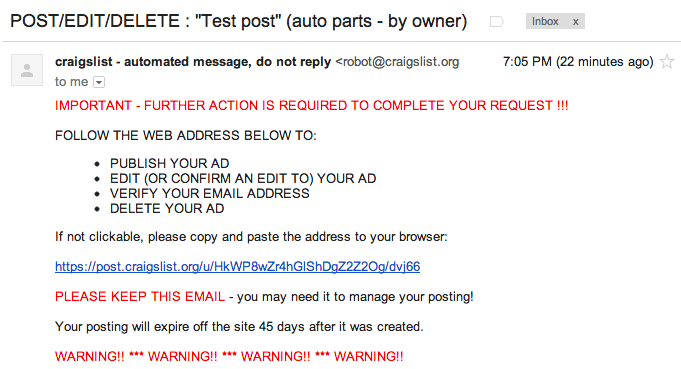I'm working on a blog and there will be an option to post a comment.
I could implement registration with username, password and email — the standard way. I could implement 3rd-party authorization with Twitter, Facebook or whatever. Instead, my idea is to put together registration and logging-in steps into one and ask for email only!
I imagine like this:
The user enter a comment and clicks "Submit",
An email is asked and user, hopefully, enters it,
New message is sent to the specified email; it contains a link,
Link redirects back to the blog,
If no display name is set for corresponding email, it's asked,
New comment is posted!
I like this system because I thing that it may be an overhead to implement something more complex for my needs. Would this actually work? What do you think?


